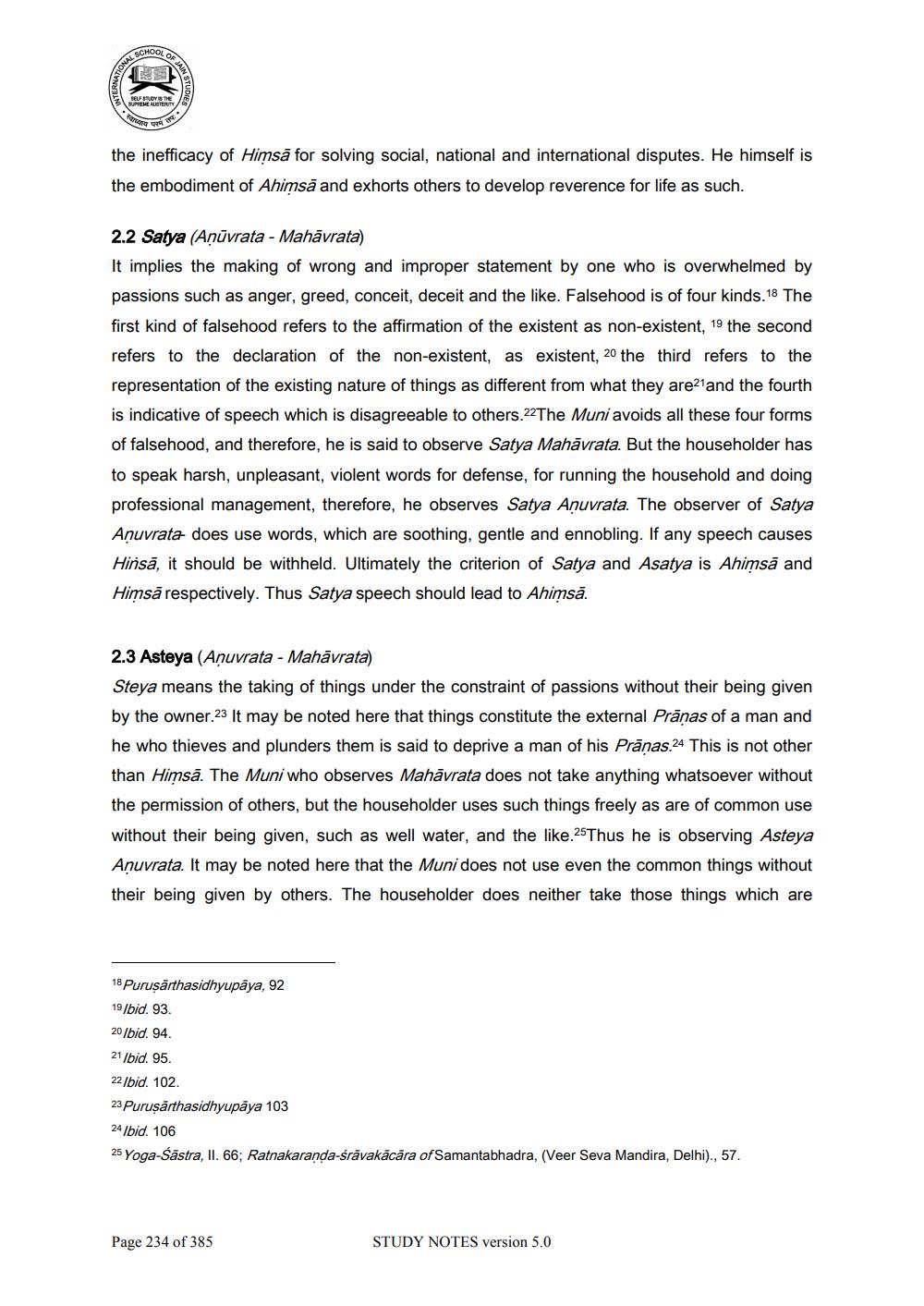________________
the inefficacy of Himsā for solving social, national and international disputes. He himself is the embodiment of Ahimsă and exhorts others to develop reverence for life as such.
2.2 Satya (Anūvrata - Mahāvrata) It implies the making of wrong and improper statement by one who is overwhelmed by passions such as anger, greed, conceit, deceit and the like. Falsehood is of four kinds.18 The first kind of falsehood refers to the affirmation of the existent as non-existent, 19 the second refers to the declaration of the non-existent, as existent, 20 the third refers to the representation of the existing nature of things as different from what they are21and the fourth is indicative of speech which is disagreeable to others.22The Muni avoids all these four forms of falsehood, and therefore, he is said to observe Satya Mahāvrata. But the householder has to speak harsh, unpleasant, violent words for defense, for running the household and doing professional management, therefore, he observes Satya Aņuvrata. The observer of Satya Anuvrata does use words, which are soothing, gentle and ennobling. If any speech causes Hirsā, it should be withheld. Ultimately the criterion of Satya and Asatya is Ahimsa and Himsā respectively. Thus Satya speech should lead to Ahimsā.
2.3 Asteya (Anuvrata - Mahāvrata) Steya means the taking of things under the constraint of passions without their being given by the owner.23 It may be noted here that things constitute the external Prāṇas of a man and he who thieves and plunders them is said to deprive a man of his Prāņas.24 This is no than Himsā. The Muni who observes Mahāvrata does not take anything whatsoever without the permission of others, but the householder uses such things freely as are of common use without their being given, such as well water, and the like.25Thus he is observing Asteya Anuvrata. It may be noted here that the Muni does not use even the common things without their being given by others. The householder does neither take those things which are
18 Purusārthasidhyupāya, 92 19/bid. 93. 20 /bid. 94. 21 lbid. 95. 22 Ibid. 102. 23 Purusārthasidhyupāya 103 24 Ibid. 106 25 Yoga-Sastra, II. 66; Ratnakaranda-śravakācāra of Samantabhadra, (Veer Seva Mandira, Delhi)., 57.
Page 234 of 385
STUDY NOTES version 5.0




